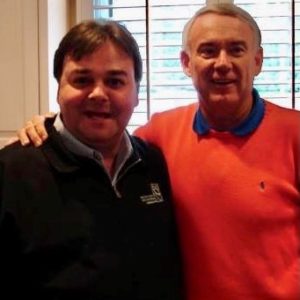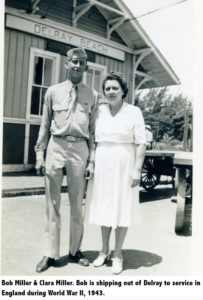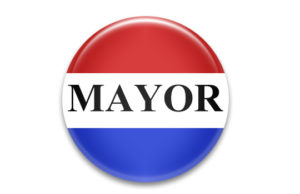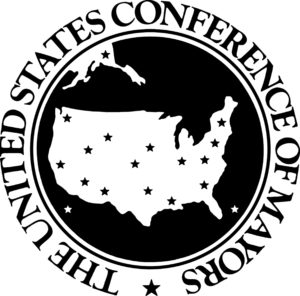
Every year, the Delray Beach Chamber of Commerce hosts a “Mayor’s Lunch” inviting all the living mayors to the Golf Club to meet the latest class of Leadership Delray.
Not everyone shows up, but this year five former mayors and the current mayor came to share stories of their terms in office.
It’s a nice tradition and a real privilege to be able to meet up and coming members of the community who are in the class. In fact, at least two of the former mayors are former Leadership Delray graduates (Dave Schmidt and me) and we highly recommend the course to those who want to gain some insight into the community.
This year, we were joined by Tom Lynch, Jay Alperin, Dave Schmidt, Tom Carney and Shelly Petrolia.
Together, the gathering of mayors spanned 30 plus years of local history. In a city, that will be 110 years old on Oct. 9, that’s a fair amount of local lore shared over Asian chopped salad.
Some of our more senior mayors have lived here for 50 years or more. I clock in at 34 years.
We have seen a whole lot of change.
And these are the people who made so much of that change happen.
I’m a big believer in the possibilities of local government—in the right hands anyway.
I’ve seen magic happen on the local level. Sadly, I’ve seen tragic happen too.
Elections have consequences.
But local government holds so much promise especially if you get the right group in office and team them up with a talented and empowered staff.
It is the only level of government where if you have an idea and two of your colleagues on the commission agree with you, change can start to happen right away. That’s not true in Tallahassee or Washington D.C. which has become a dumpster of dysfunction.
But innovation can happen on the city level and Delray is a case study.
From transforming a tired downtown into a regional hot spot and converting an old school on the corner of Swinton and Atlantic into a cultural beacon to creating a land trust to give first time homebuyers a shot at a dream—Delray has a long and proud history of innovation and accomplishment.
All along the way, mayors, commissioners, city staff, citizens, business leaders, non-profits and other stakeholders worked together to make things happen. And all along the way every one of these groups were told that their dreams were unrealistic, unachievable, or stupid.
The naysayers have always been wrong—and that’s the Reader’s Digest story of most successful places.
Step 1: Someone dreams and aspires.
Step 2: Those dreams are announced, and they are immediately assailed. (Usually by armchair quarterbacks).
Step 3: After much gnashing of teeth, the dreams are realized.
Step 4: The sky doesn’t fall.
Step 5: Everyone forgets, and the cycle continues.
And on the occasion when mistakes do get made, in a healthy city, you fix the problem, learn from it and move on.
You always move on.
That’s one of the messages that Mayor Lynch and I passed onto the Leadership Delray members at our table. We also talked about the need to recruit good people to run for office and how important it is to allow your professional staff to do their jobs without micromanaging their every move. A scared bureaucracy seizes up like an engine without oil—that’s never healthy.
You want your planners, engineers, police officers, firefighters and rank and file employees to feel like they have a say and a stake in the outcome. Progress requires collaboration. But it also requires leaders to show us the way by modeling that they can work together despite differences.
The first Delray mayor I covered as a newspaper reporter was Doak Campbell who served in the 80s.
I thought Mayor Campbell did a good job in a tough environment. The 80s were interesting in Delray—lots of crime, drugs, turnover at City Hall and infighting on the commission. Sound familiar?
But a legacy of accomplishment also came from that era. Among the achievements: the creation of the first historic districts, the founding of the CRA, the beginnings of Old School Square, early visioning efforts which led to the Decade of Excellence and a task force designed to help the downtown.
Things began to take off in the 90s with Mayor Lynch and Mayor Alperin leading the way. The Decade of Excellence began to implement the projects outlined in the Visions 2000 effort. Perhaps, just as important the culture in Delray began to change. The infighting was gone and with it the instability at City Hall. It was an era of civility and progress. The politics were calm too. Mayor Lynch ran once and served two additional terms without opposition. Mayor Alperin won his commission race in 1990 and served until 2000 without having to run again—an almost unimaginable scenario these days.
With a new City Manager (David Harden), new Police Chief (Rick Overman), new Chamber President (Bill Wood) and a maverick CRA Director (Chris Brown) there was a team in place that would enable a ton of good things to happen.
When Dave Schmidt became mayor in 2000 after winning a three-way race, the Decade of Excellence was largely completed. We had a blank slate and we wanted to start planning and visioning again.
I was on that Commission along with Pat Archer, Bill Schwartz and Alberta McCarthy. Mr. Schwartz would retire in 2001 and we were joined in 2001 by Jon Levinson.
We got along as a group despite being very different people. Mayor Schmidt was a quietly self-assured leader who did not have any problems with members of the commission taking the lead on important community issues. I was passionate about the downtown, so I co-chaired the Downtown Master Plan effort with Chuck Ridley. Pat led a task force on drugs and sober homes. Jon spearheaded housing issues and was part of the founding team at the Community Land Trust. Alberta and I took on race relations and Dave was there to lead us through the post 9/11 era, the controversial relocation of Atlantic High School and much, much more. He was great to work with.
When Dave was term limited in 2003, I ran for mayor. I had the great privilege to work with Commissioners Fred Fetzer and Brenda Montague and my successor Rita Ellis. We were a collegial group, and I was very grateful to serve alongside these special people. I considered them my teammates. We didn’t put candidates up against each other and we rooted for each other because we knew our success and more importantly our city’s success were inextricably linked.
So yes, we debated and yes, we disagreed but when the roll was called, we cast our votes and moved on. It was never personal. It was always on to the next issue and the next vote. As it should be.
I’m often asked what has changed in Delray and my answer is always the same: the culture.
Instead of building on the achievements of the past and working toward a better future we seem fixated on looking backwards and tearing things down instead of making them better.
We went from collaborative to toxic.
Toxic isn’t productive.
Toxic is also a choice.
It’s going to take remarkable leadership to get us back on track. Because we are lost my friends. Deep in the weeds, waste deep in the big muddy as they say.
We are going to need the kind of leadership that created so much good for so long. The kind that I saw walk into that room at the golf course for Leadership Delray.
Let’s hope it comes soon– before even more is lost.





 Well…we did it again.
Well…we did it again.
